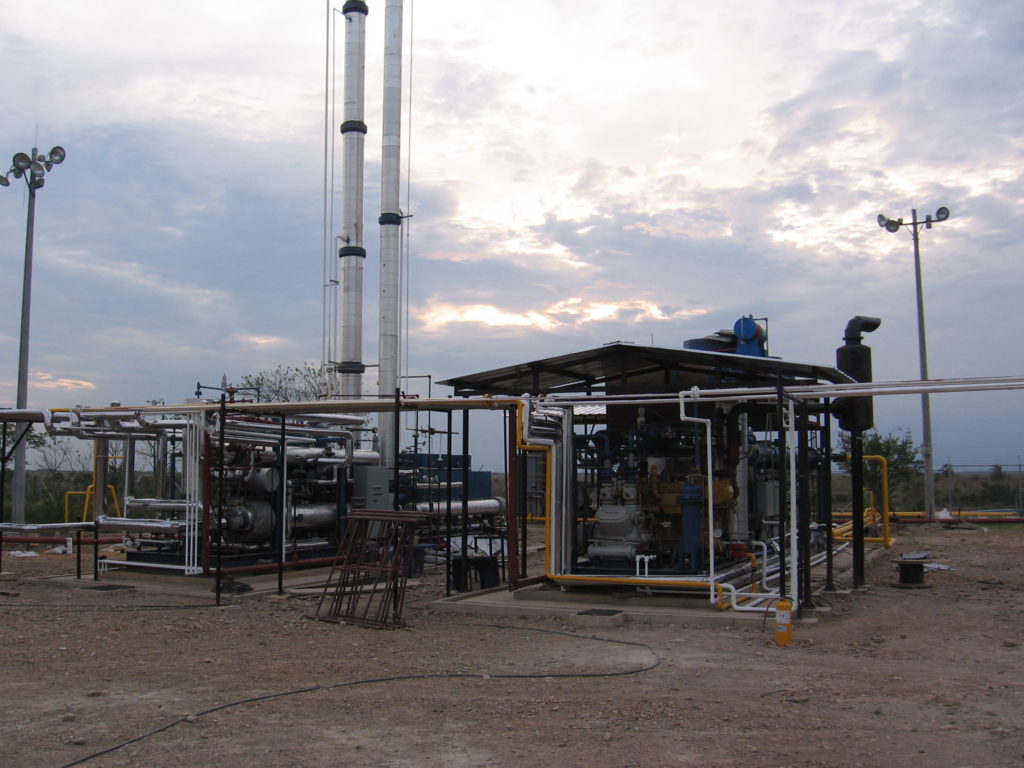
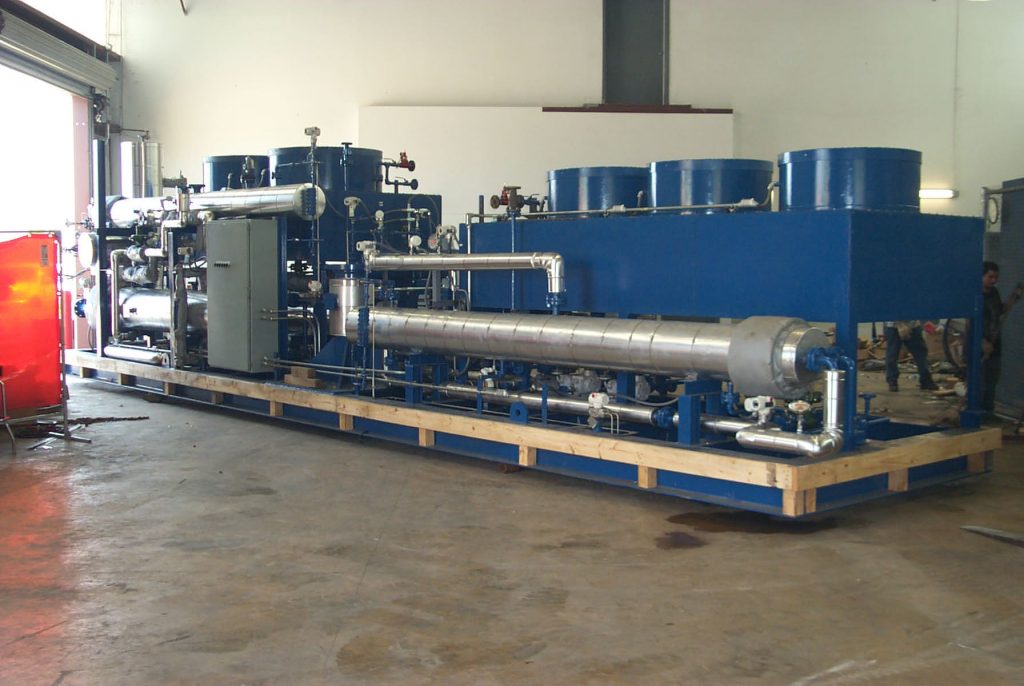
Natural gas liquids recovery allows the processor to separate and purify heavier hydrocarbons from natural gas. Heavier hydrocarbons are more likely to condense into liquids under pressure in a pipeline, slowing the flow and increasing the wear on the piping. Extracted hydrocarbons, such as propane and butane, can be sold more profitably as separate products.
Natural gas processing equipment encompasses numerous unique processes.
- A subset of NGL, liquefied petroleum gas (LPG) focuses on propane and butane. LPG plants are used for hydrocarbon dew point control, natural gas liquids recovery, LPG production, propane recovery and butane recovery. Stabilized LPG is used worldwide for heating and transportation. LPG plant liquids are usually more valuable than the gas fractions from which they are produced. LPG plants produce acceptable heating values (HHV and LHV), which is important for downstream combustion stability.
- Dew point control plants also produce NGL and LPG but their main purpose is to eliminate hydrocarbon condensation in pipelines and downstream process units and can eliminate hydrate formation with glycol or methanol injection.
- Refrigerated gas plants recover a large fraction of propane and heavier gases without the pressure cost of a J-T plant but add the refrigeration compression HP.
- J-T plants are simpler in design and use high-pressure gas energy to liquefy heavier components by throttling. The Joule-Thomson effect is a physical principle that changes the gas entropy through pressure reduction and produces chilling and yields liquid formation.
- Turboexpanders recover a large fraction of ethane and heavier gases.
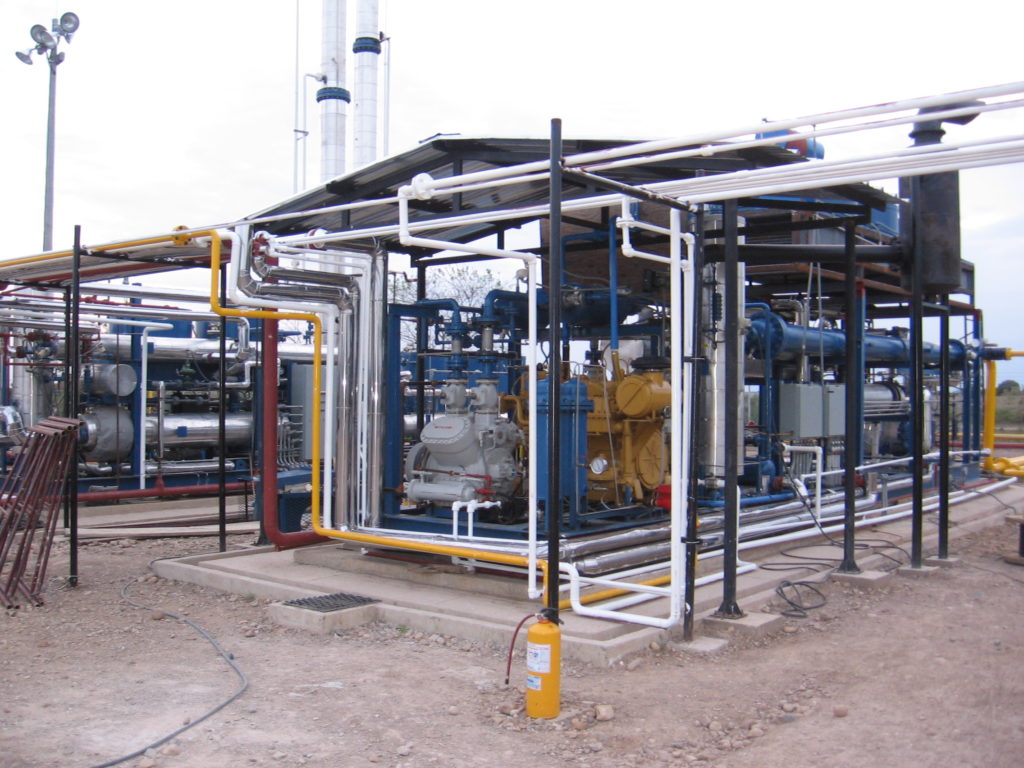
SPS processes use either refrigeration, direct expansion J-T effect or turboexpanders. Debutanizers and depropanizers will be necessary to separate NGL and LPG into propane, butane, and naphtha. SPS dew point control uses the J-T effect or a refrigerated gas plant, or can use waste heat from engine exhaust to drive an ammonia absorption refrigeration gas plant. Natural gas processing plants consist of a cross heat exchanger, three phase separators, propane refrigeration, stabilizers, depropanizers, debutanizers, turboexpanders, glycol or methanol injection for hydrate prevention, etc.
Advantages of SPS Natural Gas Liquids Recovery Plants
- We offer refrigerated, J-T, or turboexpansion plants
- We can quickly run necessary process simulations to determine the best process conditions to meet your hydrocarbon dew point requirements
- We can build the necessary de-ethanizers, de-propanizers, and de-butanizers for fractionation trains
- We can build all required vessels, heat exchangers, air coolers, and compressor packages, making our pricing very competitive
For more information about SPS Natural Gas Liquids Recovery solutions, contact us today.
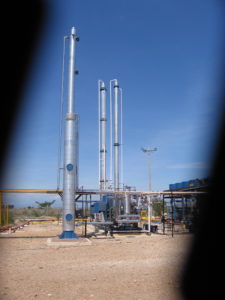
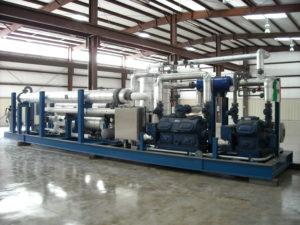
Certifications
SPS Systems, Inc. maintains certification with the American Society of Mechanical Engineers (ASME) for “U” stamped vessels and the National Board for “R” stamped repairs.

